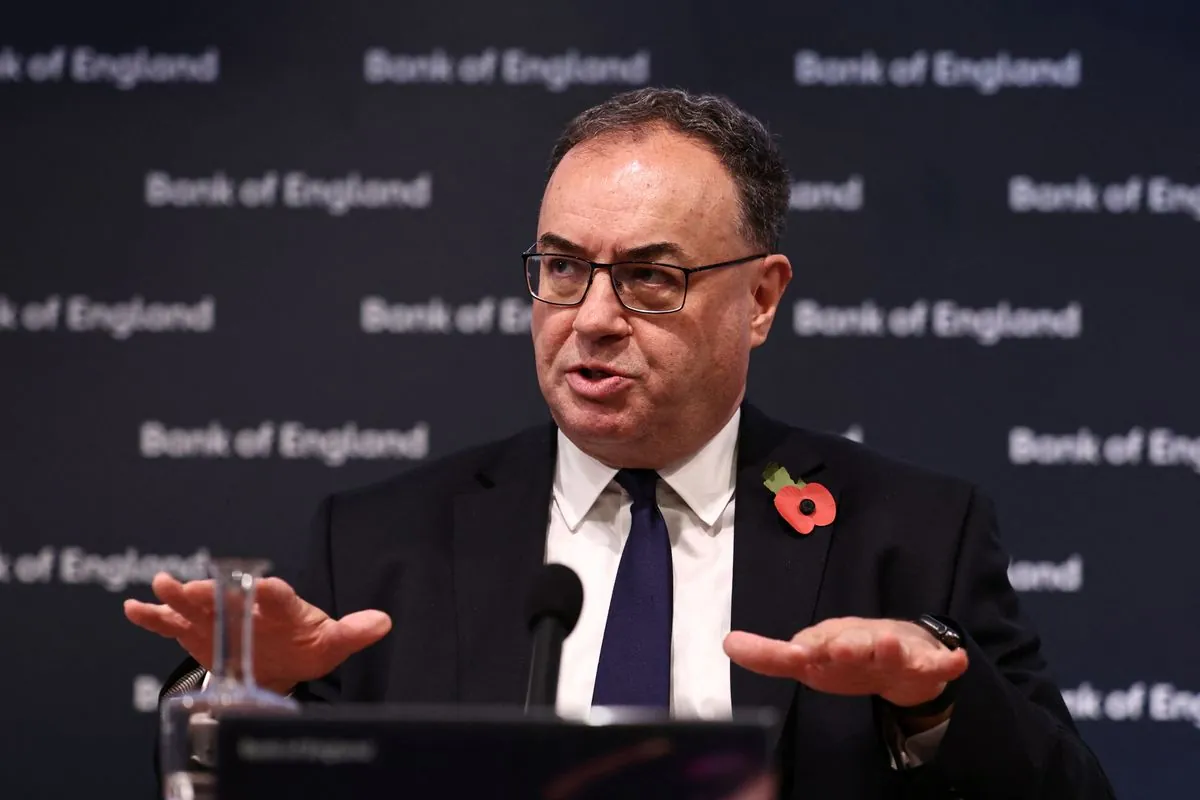Bank of England's Policy Failures: The Case for Monetary Accountability
As interest rates remain high, the impact on homeowners and businesses raises questions about the Bank of England's accountability. The article examines the flaws in the current system and calls for reform.

The Bank of England's decision to maintain high interest rates has sparked a debate about the consequences of monetary policy and the lack of accountability for those making these crucial decisions. As homeowners struggle with mortgage payments and businesses face credit challenges, it's essential to examine the system that allows such far-reaching economic impacts without clear responsibility.
Andrew Bailey, the current Governor of the Bank of England, has faced criticism for his role in what some consider the most significant monetary policy failure in recent history. Despite presiding over a period where inflation reached five times its targeted level, Bailey appears unperturbed by calls for accountability.
The root of this issue lies in the structure of the Monetary Policy Committee (MPC), established in 1997 when the Bank of England gained operational independence. This committee, which Bailey chairs but does not control, makes collective decisions on interest rates and quantitative easing. This diffusion of responsibility means that no single individual can be held accountable for policy failures.

The MPC's flaws extend beyond accountability issues. Its tendency towards consensus and its limited control over other inflationary factors, such as fractional reserve banking, raise questions about its effectiveness. The committee's decisions in 2021 to delay base rate adjustments and continue quantitative easing have been particularly criticized.
Bailey's career trajectory exemplifies a system that rewards conformity over performance. Since joining the Bank in 1985, he has held various roles related to inflation control and monetary stability. However, during his tenure, the UK has experienced significant financial crises, including Black Tuesday in 1992, the Global Financial Crisis of 2007-2008, and the recent inflation surge.
This pattern of bureaucratic accountability shirking is not unique to the financial sector. The Post Office Horizon scandal, one of the largest miscarriages of justice in British history, demonstrated similar issues in governance and responsibility.
"No business would be run this way. No sports team would delegate strategy to a committee. Our fiscal policy is run by a chancellor, not a fiscal policy committee. So why is monetary policy run any differently?"
The article suggests that nearly 30 years after monetary policy independence was implemented, it's time to reevaluate the effectiveness of this system. The inflation crisis that led to the current high interest rates was predicted by many, raising questions about the MPC's ability to anticipate and respond to economic challenges.
As working families face the burden of high mortgage rates, there is a growing call for reform. The article proposes unwinding the MPC system and centralizing responsibility for monetary policy decisions. While the committee could remain in an advisory capacity, having a single accountable figure could lead to more effective and responsive monetary policy.
In conclusion, the current system's flaws have become increasingly apparent during times of economic stress. As the Bank of England continues to navigate challenging economic waters, the need for clear accountability and effective governance has never been more critical. The future of UK monetary policy may depend on addressing these systemic issues and ensuring that those responsible for crucial economic decisions face appropriate scrutiny and consequences.


































